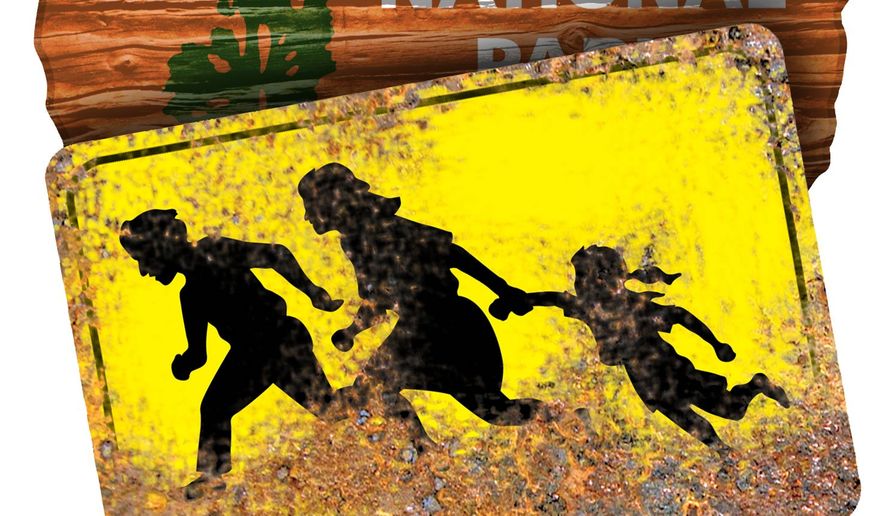OPINION:
Every year, hundreds of thousands of illegal border-crossers pass through our national parks and wildlife refuges on their way to the interior to secure unlawful work or to smuggle in people and drugs. The trash, waste and discarded vehicles brought in by these thousands of individuals is so large federal land management agencies have admitted it has altered the ecological processes and degraded habitats in these areas. Newly confirmed Secretary for the Interior Ryan Zinke has a chance to change this and make great again our nation’s worst effected parklands.
Federal statutes like the Wilderness Act of 1964 were enacted to ensure that our nation’s most prized national endowments would be off-limits to exploitation and made fully available to the American public. But as the Interior Department’s National Park Service told the Immigration Reform Law Institute (IRLI), in some of our natural reserves today, like southern Arizona’s Organ Pipe Cactus National Monument, nearly half of all trails and sites are completely closed to the public due to high levels of illegal immigration and smuggling activities. In the closed-off areas, even park service staff must be accompanied by their agency’s own special law enforcement, itself a recent development in direct response to the level of dangerous illegal alien activity. Internal agency reports show thousands of pounds of drugs being seized in our parks annually sometimes trafficked in with “cloned agency trucks.” And according to the Justice Department, this is all due to the region’s “largely unprotected border.”
On top of being kept out of their own national parks, the American public is also being kept out of the conversation. Both the National Park Service and its sister component, U.S. Fish and Wildlife, have explained to the IRLI they don’t even estimate the damages to the natural and cultural resources that result from illegal border-crossing. How much is attributed to illegal aliens and smugglers in terms of theft, violent crime and diversion fires, which are purposely set to shake off border agents, the agencies cannot tell us.
As a result, the public is relegated to one-off Government Accountability Office reports or the very rare congressional hearing to find out what’s happening in their national parks. But by not assessing the damages and dangers in our parks, the public is kept in the dark and our elected officials will never address the issue. In contrast, President Trump has recently mandated that the Homeland Security Department track and report illegal-alien crime. By doing so, the president is making the consequences of immigration fully transparent for the American people. Mr. Zinke must do the same.
On top of transparency, the secretary can make direct changes. Section 7 of the Endangered Species Act states that Cabinet secretaries must ensure their federal actions do not jeopardize the existence and habitats of endangered or threatened species. Not only must those agency heads consult with the secretary for the interior, but the secretary may himself initiate those consultations. Following these consultations, if the secretary finds plant and animal species are being threatened, he must suggest alternative solutions.
Documents the IRLI received already show Mr. Zinke’s agency has made these findings vis—vis illegal border-crossing and that the agency wants change. According to internal reports from U.S. Fish and Wildlife about its Cabeza Prieta National Wildlife Refuge, the foot and car traffic caused by illegal aliens (as well as Border Patrol agents) has impacted vegetation, hydrological processes, wilderness character and animal life, including the much-endangered Sonoran pronghorn. Considering so much of our immigration system, including federal actions, encourages or allows hundreds of thousands of illegal border-crossers to stream through our border-area parks and refuges annually, Mr. Zinke must call on our immigration agencies to turn off the main magnets of illegal immigration (employment, welfare, birthright citizenship) and ensure that we have the strongest fence possible to keep out the cartels.
The Wilderness Act recognizes our most precious natural possessions as areas “where the earth and its community of life are untrammeled by man, where man himself is a visitor who does not remain.” That’s a promise to our progeny which we must keep.
• Ian Smith is an attorney with the Immigration Reform Law Institute (Irli.org).




Please read our comment policy before commenting.